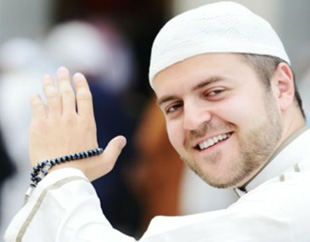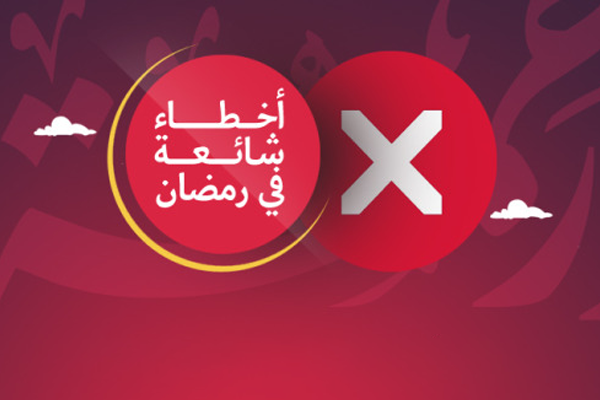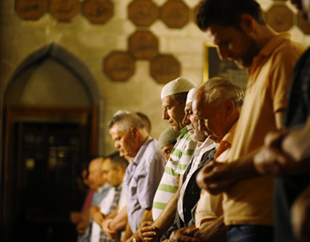
It is known that Allah (SWT) does not enjoin what is right nor forbid what is wrong, and does not impose an act of worship or obedience only for very noble goals, in the interest of the servant. Religious rituals in Islam are not limited to their physical and phenomenon aspects, but go beyond to spiritual and sublime purposes and objectives, if neglected by the Muslim, he will empty the worship from its essence, and will turn it to a valueless and senseless act.
Ramadan is not just a ritual in which an individual refrains from the craving for food and sex from sunrise to sunset, it’s mostly an occasion for the Muslim to commit himself to good attitudes and behaviors, and to abstain from obvious or hidden abominations. The Prophet Muhammad (pbuh) said: “It may be that a fasting person does not gain anything from his fast except thirst and hunger”, the purpose of fasting go beyond the physical sense of hunger and thirst to the spiritual understanding of Allah’s blessings, and to the moral feeling of sorrows, sufferance and problems of others.
The true Muslim practices the fasting ardently with its material and spiritual aspects and considers it as an annual training to improve his acts and behaviors in various aspects of life in a way that accords with the Hadith, Prophet Muhammad (pbuh) said: “The believer is not a slanderer, one who curses a great deal, one who indulges in obscenity or who in engages in foul talk”. The true believer does not engage in insulting people, nor act in shameful or obscene manners.
In normal days, especially in Ramadan, the true Muslim says the truth, speaks of the good, avoids rejected practices such as lying, charlatanism, deceit, dishonesty, and perjury among others, and this is considered a constructive behavior of worship in Ramadan. The Prophet (pbuh) said: “If one does not eschew lies and false conduct, Allah has no need that he should abstain from his food and his drink”. Fasting has no value if the fasting person does not avoid lying.
The true Muslim turns away from vain talk, avoids obscenity, slandering, and wickedness in speech, doesn't waste his time in bad deeds or backbiting, does not weaken himself in front of the material and moral desires of life, he pays no attention to bad manners and provocations of others, thus, the main purpose of fasting is reached, as a proof this Hadith of the Prophet (pbuh): “When anyone of you is observing fast, he should neither indulge in obscene language nor should he raise his voice; and if anyone reviles him or tries to quarrel with him, he should say: "I am fasting"”.
The true Muslim is also the one who is not affected during the fasting by the abstention from eating, drinking and desires, his mettle and determination are strong, he is always self-reassured and in control of his temper, does not shout in people's faces or quarrel with them. He does not raise his voice in their faces regardless of the reasons and circumstances, in accordance with the words of the Prophet (pbuh): “If one of you is fasting, he should avoid sexual relation with his wife and quarreling”.
Through these behaviors, Ramadan is considered as a training workshop of good morals and high-class behaviors, and thus the worshiper will reach righteousness with himself and his religion free from overacting and hypocrisy, and therefore will constitute a model for the reconciliation between worship and behavior in Ramadan and at other times, so he reflects the true image of Islam as described by Prophet Muhammad (pbuh) when asked what is religion? He answered so eloquently: “Religion is in the treatment of others”.
Written by: Amine Hilal





Comments